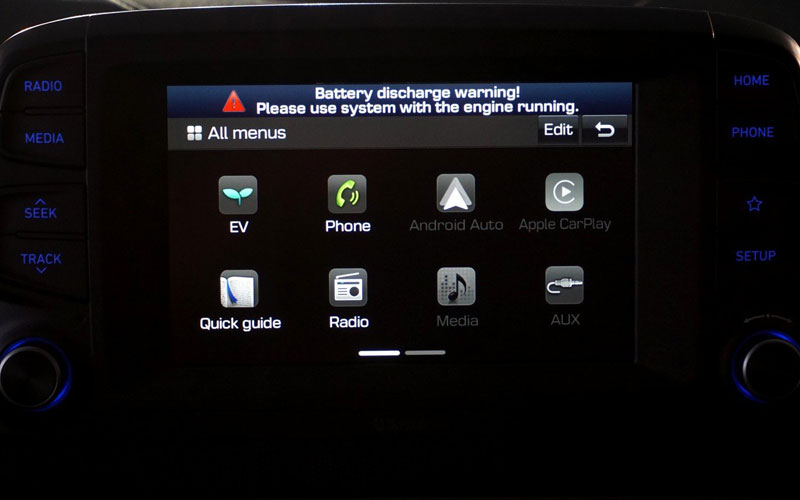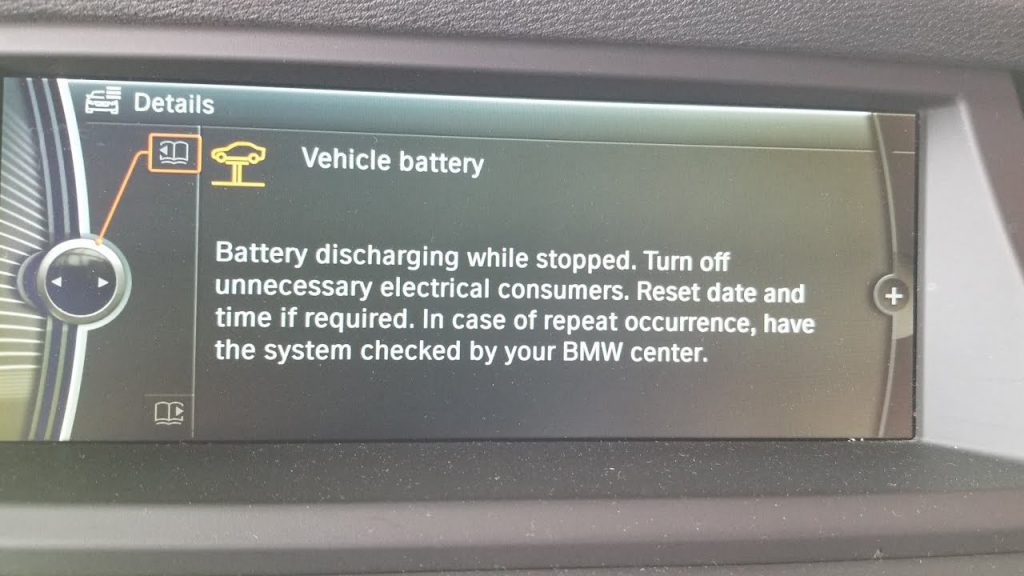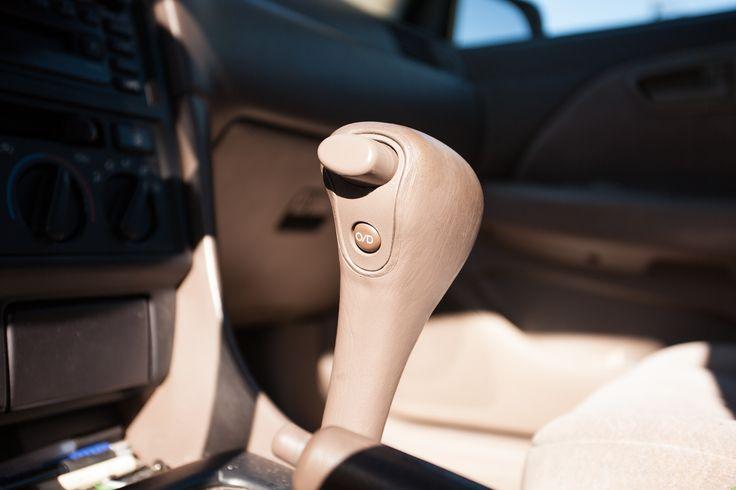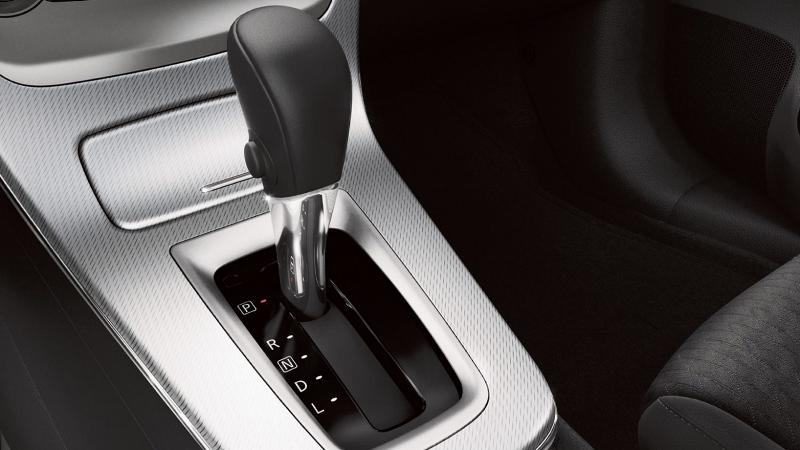Battery Discharge Warning: What It Means & How To Fix It
One day, you notice a warning with the message “Battery Discharge Warning” displayed on your vehicle dashboard. What does this warning mean? and what should you do in this situation? Stay calm! In this discussion, we will explore the significance of the battery discharge warning, its common causes, and the necessary steps to address this warning effectively.
What Does Battery Discharge Warning Mean?

Although many drivers have basic knowledge of the car, there are likely some drivers who do not truly understand the meaning or overlook it when they see the battery discharge warning appearing on the digital display. What is a discharged battery warning? Simply put, a battery discharge warning is an important feature in modern vehicles that serves as an alert system to notify drivers when the battery charge level is low or dropping rapidly.
Nowadays, vehicles become increasingly reliant on electrical systems and advanced technologies, and maintaining a healthy battery charge is crucial for the proper functioning of various vehicle components. The battery discharge warning acts as a safeguard, providing drivers with timely information about the battery’s status and prompting them to take appropriate actions to prevent potential breakdowns or electrical system failures.
What does the battery discharge warning look like in your car? The appearance of the battery discharge warning may vary slightly depending on the specific make and model of the car. However, in most vehicles, the battery discharge warning typically appears as a symbol or an icon on the dashboard.
When the battery discharge warning illuminates on the dashboard, it is usually displayed in a distinct color, such as red or yellow, to grab the driver’s attention and indicate that immediate action or attention is required.
Which Car Models Have This Common Battery Discharge Issue?
The battery discharge warning is a common feature found in most modern cars across various makes and models. It is a standard part of the onboard diagnostic system in vehicles and is designed to alert drivers when the battery charge is low or dropping rapidly. Therefore, you can find the battery discharge warning in popular car models from manufacturers such as:
- Audi (e.g., Audi A4, Audi A6)
- Hyundai (e.g., Hyundai Elantra, Hyundai Sonata)
- Kia (e.g., Kia Optima, Kia Forte)
- Honda (e.g., Honda Civic, Honda Accord)
- Chevrolet (e.g., Chevrolet Cruze, Chevrolet Malibu)
- Volkswagen (e.g., Volkswagen Golf, Volkswagen Passat)
Knowing The Reasons For Battery Discharge Warning On The Car Dashboard

Sometimes you will see that the battery discharge warning will appear on the infotainment display even when the engine is off or on. Don’t worry! This warning in a car may be triggered by various factors. Here are some common causes:
Leaving lights or accessories on
Habits such as turning on the air conditioner or radio when the engine is not running, forgetting to turn off the headlights or turn signals when getting out of the car, listening to music, watching movies for a long time in the car, forgetting to close the doors, etc. will drain the battery. To protect the battery, at this time, the warning will be displayed on your dashboard.
Additionally, certain electrical devices or systems in the vehicle may continue to use power even when the car is not running. This parasitic drain, if excessive, can deplete the battery and activate the warning.
Battery age and wear
Over time, car batteries naturally degrade and lose their ability to hold a charge. As the battery ages, it may struggle to maintain sufficient power, leading to a battery discharge warning.
Electrical system malfunctions
Faulty electrical components or wiring issues can cause excessive power to drain from the battery, resulting in a discharge warning. This can include issues with the alternator, starter, voltage regulator, or other electrical system components.
Extreme temperatures
Extreme cold or hot weather conditions can affect battery performance. Cold temperatures can reduce a battery’s ability to deliver power, while high temperatures beyond the standard threshold will negatively affect the chemical reactions in the battery, and disrupt the power process, thereby causing the battery to quickly discharge.
Battery or charging system issues
A malfunctioning battery or charging system, such as a faulty alternator or voltage regulator, can prevent the battery from receiving a proper charge, leading to a battery discharge warning.
Bad ground connection
A faulty ground connection can potentially be a reason for a battery discharge warning. The ground connection in a vehicle’s electrical system provides a path for electrical current to flow back to the battery and the charging system. If the ground connection is faulty or corroded, it can impede the flow of current and cause issues with the charging system.
When a ground connection is compromised, it can lead to various electrical problems, including inadequate charging of the battery. A weak or intermittent ground connection may result in insufficient charging current reaching the battery, causing it to discharge over time. As a result, the vehicle’s battery monitoring system may detect the low voltage or low charge state and trigger a warning, such as a battery discharge warning, on the dashboard.
Short driving
Probably you don’t know but driving short distances can be another reason for making the battery discharge warning on. Because the driving time is not sufficient enough for fully charged. When a vehicle is running, the alternator generates electrical power that charges the battery and supplies power to the vehicle’s electrical systems. However, short drives may not provide enough time for the alternator to fully recharge the battery, causing a gradual battery discharge over time.
>> Related post: What Can Drain A Car Battery? Here Are 6 Common Reasons To Learn
What To Do When The Battery Discharge Warning Is On?
When you experience this problem, what should you do? Our advice is “Take the battery discharge warning seriously and avoid ignoring it”. Continuing to drive with a low or failing battery can cause further electrical system issues or even a breakdown. However, there are several simple methods you can try to fix this issue:
Watch more:
Charge or jump-start your car battery
If possible, connect the battery to a charger or use jumper cables to jump-start the vehicle from another car with a fully charged battery. This may provide enough power to continue driving or reach a service center.
Turn off non-essential electrical equipment
Reduce the strain on the battery by turning off any non-essential electrical accessories such as headlights, radio, or the air conditioning system.
Limit electrical usage
Minimize the use of power-consuming features like the radio or infotainment system, heated seats, or power windows to conserve battery power.
Check battery terminal
Ensure that the battery connections are secure and free from corrosion. Loose or corroded connections can prevent the battery from charging properly.
Check for parasitic battery drain
If the warning persists or the battery frequently discharges, there may be a parasitic drain causing the issue. Consult a professional mechanic who can perform a parasitic drain test to identify and address any excessive power draw.
>> Read more: Does Idling A Car Charge The Battery?
If the battery discharge warning still shows off when you apply these methods, it is advisable to consult a qualified mechanic or visit a service center for a thorough inspection and diagnosis. They can identify the underlying cause and recommend the necessary repairs or replacements.














